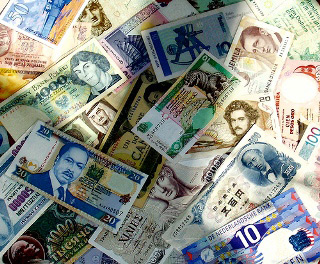-

-
Courses
Find courses by:
Collections
Cross-Disciplinary Topic Lists
- About
- Donate
- Featured Sites
This is an archived course. A more recent version may be available at ocw.mit.edu.

International economics involves studying the balance of payments between nations. (Image by Earl - What I Saw 2.0 on Flickr.)
Prof. Dave Donaldson
Prof. Arnaud Costinot
14.581
Spring 2011
Graduate
This course covers, with a focus on both theory and empirics, advanced topics in international trade (as well as inter-regional trade and economic geography). It includes the study of positive issues, such as: Why do countries trade? What goods do countries trade? What are the implications of openness for the location of production, industries, occupations, and innovative activity? And, what impedes trade and why do some countries deliberately erect policy impediments to trade? The course also concerns normative issues, such as: Is trade openness beneficial to a representative agent? And, Are there winners and losers from trade and if so, can we identify them? Throughout, these issues are approached in neoclassical settings as well as those with market failures, at the industry-level as well as the firm-level, and in the presence of both mobile and immobile factors (e.g., foreign direct investment (FDI), offshoring of tasks, multinational firms and immigration).
Donaldson, Dave, and Arnaud Costinot. 14.581 International Economics I, Spring 2011. (MIT OpenCourseWare: Massachusetts Institute of Technology), https://ocw.mit.edu/courses/economics/14-581-international-economics-i-spring-2011 (Accessed). License: Creative Commons BY-NC-SA
For more information about using these materials and the Creative Commons license, see our Terms of Use.
